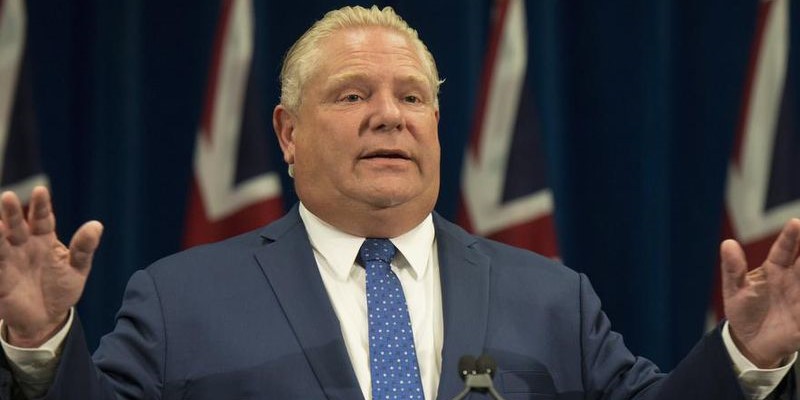Ford government abandons any notion of debt reduction

Doug Ford’s Progressive Conservative government this week published Ontario’s Fall Economic Statement (FES). This update on the state of Ontario’s finances further demonstrated his government’s fundamental lack of commitment to balanced budgets and shrinking the province’s debt burden.
In Opposition, the Progressive Conservatives frequently criticized the government’s willingness to borrow and spend money unnecessarily. Vic Fedeli, then-finance critic and Premier Ford’s first finance minister, blasted the Wynne government for its willingness to “live on the taxpayers’ credit card” and governing as though “money grew on tress.”
Since taking office, however, the Ford government has managed public finances in a manner remarkably similar to its predecessors, actually increasing spending from what it inherited and continuing to run large deficits. This week’s FES, however, is the clearest proof yet that the Ford government does not prioritize debt reduction.
Consider that in fiscal year 2021/22 an unexpected surge of additional tax revenue accidentally eliminated the deficit for the Ford government and pushed the province into a surplus position for the first time in a decade and a half. Revenue is set to stay essentially flat in 2022/23 from the elevated levels that pushed the 2021/22 finances into surplus. However, the Ford government plans to increase spending (excluding interest costs) by 8.6 per cent. In other words, to spend all the additional revenue and then some.
This spending hike will drive Ontario immediately back into a deficit position. Indeed, Ford’s FES forecasts a deficit of $12.9 billion for the 2022/23 fiscal year. The FES also promises spending restraint over the next two years to gradually bring the province’s finances back into balance, but it’s important to always take promises about government spending discipline in future years with a large grain of salt. This is particularly true when, as is the case for Premier Ford’s, a government has shown no meaningful prior commitment to spending restraint.
But even if the government’s forecasts for future years come to pass, the FES demonstrates the hollowness of past criticisms of the Wynne and McGuinty governments for their willingness to rely on the taxpayer “credit card.” According to FES forecasts, the province’s debt-to-GDP ratio (the best measure of the size of any jurisdiction’s debt) will hover near its historic high level of approximately 40 per cent of GDP with no meaningful progress expected.
While the Wynne government never did much about the debt, it at least paid lip service to the importance of shrinking Ontario’s debt burden over time. The Ford government appears to have abandoned this important fiscal goal entirely.
In opposition, the Progressive Conservatives aggressively criticized it predecessors for a refusal to take balancing the budget seriously and for failing to address Ontario’s debt burden. The Ford government’s latest fiscal update is the clearest sign yet that, despite rhetoric to the contrary, this government is no more committed to these goals than the Wynne government.
As a result, after just one year’s reprieve following a decade and a half of deficits, Ontario’s books this year will once again be splashed with red ink and the Ford government will make no progress on its promises to reduce the debt burden, which will eventually be passed along to future generations of Ontarians.
Author:
Subscribe to the Fraser Institute
Get the latest news from the Fraser Institute on the latest research studies, news and events.

